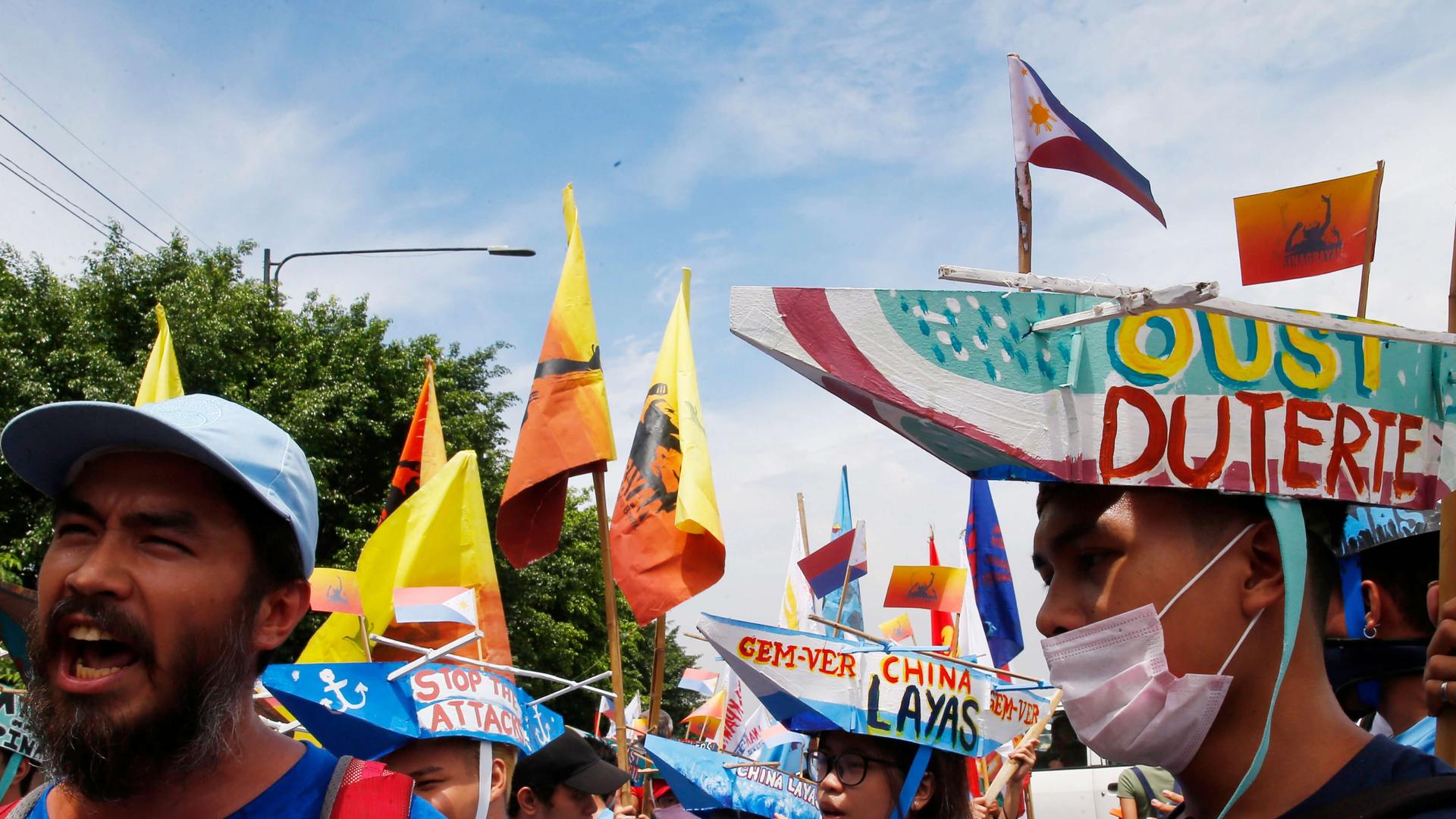Critical State is your weekly fix of foreign policy without all the stuff you don’t need. It’s top news and accessible analysis for those who want an inside take without all the insider bs. Subscribe here.
This analysis was featured in Critical State, a weekly newsletter from The World and Inkstick Media. Subscribe here.
When the state makes up its sovereign mind to do some repressing, it is often not the central nervous system of national government — the national police or secret service — that actually carry out purges or mass arrests. Instead, there are often layers of distance between the decision-makers and the people who implement their decisions, even when the decision is to commit violence against the state’s own citizens. This week, Critical State takes a deep dive into research on how national governments interact with their distributed networks to exercise a putative monopoly on violence.
Related: Peacekeeping work: Part I
When Rodrigo Duterte won the 2016 presidential election in the Philippines, his signature policy proposal was his war on drugs. Even by the standards of wars on drugs, the one he proposed was particularly brutal. He advocated for the extrajudicial killing of even low-level drug offenders, bragging that he personally had shot three drug dealers dead during his time as mayor of Davao City. The plan won him the election and remains wildly popular in the Philippines even as the government says it has killed nearly 6,000 Filipinos. Human rights groups estimate it has killed many more.
Related: Peacekeeping work: Part II
As president, Duterte moved from the murdering to the sanctioning role in the practice of state-sanctioned murder. To actually implement his program, he needed local governments throughout the country to step up and do something that doesn’t necessarily come naturally in a democracy like the Philippines: kill their own constituents. Unsurprisingly, there was a mixed response among mayors when it came time to actually put Duterte’s proposals into action.
Related: Civilian decisions in conflict: Part I
What is more of a surprise is the pattern of variation in responses. As a forthcoming article in the Journal of Politics by Nico Ravanilla, Renard Sexton, and Dotan Haim shows, a crucial predictor for the extent to which municipalities complied with Duterte’s plan was the amount of patronage money they had at their disposal when Duterte was elected.
Related: Civilian decisions in conflict: Part II
Ravanilla et al. coded each mayor based on their party affiliation in 2016 and how substantial of a patronage network that party affiliation provided them. Based on the mayors’ access to patronage, the researchers then labeled each one as either an outsider or an insider. Insiders had a lot of resources to draw on and could afford to buy the loyalty of the constituencies they needed to stay in power. Outsiders, however, were comparative political loners, with much less cash to distribute.
When they measured reports of police violence in municipalities governed by insider and outsider mayors, the researchers found that municipalities with outsider mayors identified 40% more drug offenses — that is, conducted 40% more drug enforcement — than insider-led municipalities. Which is weird, seeing as they did basically the same amount of enforcement on every other category of crime. More alarming, all that increased drug enforcement also led to increased extrajudicial killings. Police in outsider municipalities were 60% more likely than those in insider municipalities to have killed a drug suspect after Duterte’s election.
Ravanilla et al.’s explanation for these divergences is that the mayors are all acting out of self-preservation. For the outsider mayors, who have little to fall back on if support for their policies wanes, being identified with Duterte’s popular anti-drug crusade is simply good politics. By prosecuting the war on drugs enthusiastically, they run the risk of police scandal but they gain the benefit of association with a widely approved policy.
For insider mayors, however, there is much less incentive to take on the risk of a police scandal. They know that the danger of being the enthusiastic supporter of the “Leopards Eating People’s Faces Party” comes when the leopards eat a locally important face and they are implicated. The insider mayors would much rather limit the amount of violence their police forces engage in and then make up any subsequent dip in their support by strategically distributing cash.
As in so many instances, in the Philippines, enacting violence helped turn some of the outsiders into insiders. During the 2019 midterm elections, outsider and insider mayors joined Duterte’s party en masse, hoping to ride his coattails. Yet, when the votes were counted, outsiders who switched, having fought Duterte’s drug war, were nearly 20% more likely to be reelected under Duterte’s banner than the insiders.
Our coverage reaches millions each week, but only a small fraction of listeners contribute to sustain our program. We still need 224 more people to donate $100 or $10/monthly to unlock our $67,000 match. Will you help us get there today?
